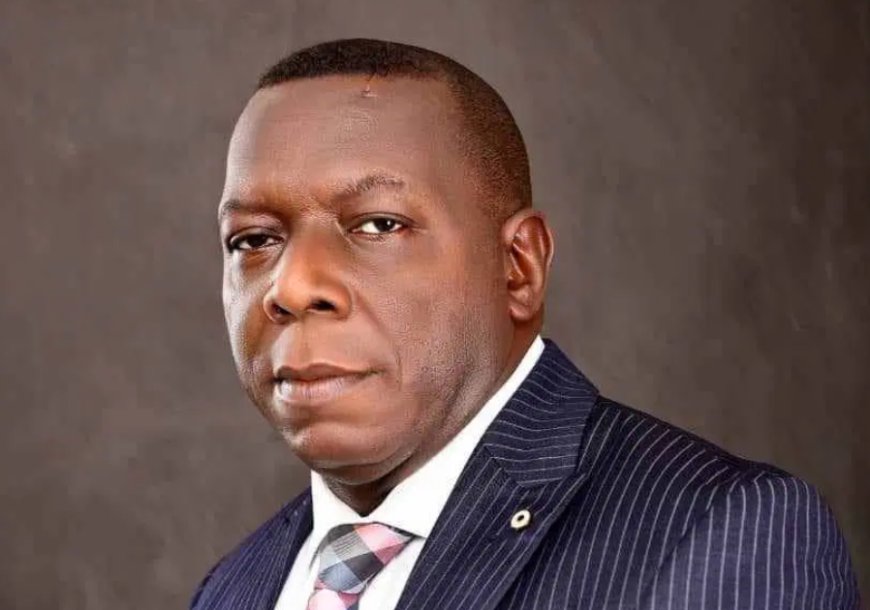C’River partners World Bank on training of teachers

The Cross River State government, in collaboration with the World Bank’s Project Hope Education, has commenced an intensive training programme for teachers aimed at bridging the learning gaps in English and Mathematics across primary schools in the state.
The Cross River State Commissioner for Education, Professor Stephen Odey, while addressing trainees at a three-day workshop, said the state government is dedicated to investing in continuous staff training to enhance manpower and improve educational outcomes, according to a statement he released on Sunday.
The workshop, themed “Enhancing Pedagogical Practices for Effective Teaching and Learning of English and Mathematics in Primary Schools,” ran simultaneously from October 29 to 31, 2025, at the Teachers’ Continuous Training Institute in Biase and in centres in Ikom and Ogoja.
The decentralised approach allowed a large number of primary school teachers from all three senatorial districts to participate in the high-level training.
This programme is a professional training development circle put together by His Excellency, Senator Bassey Otu’s People-First mantra and commitment to teacher professional training”, Odey stated.
He stressed that the goal is to develop “competent and resourceful faculty members” who can deliver quality teaching.
Odey cited alarming national research showing that an estimated 45.8 million children aged 5-14 years are unable to read and understand a simple text, corresponding to an overall learning deprivation rate of 76 per cent nationwide.
He noted that this collaboration with the Universal Basic Education Board and the World Bank aims to tackle both policy constraints and service delivery challenges in basic education.
The Chairperson of the Cross River State Universal Basic Education Board, Fidelia Okpo-Ene, lauded the Teachers Continuous Training Institute for its dedication and modern facilities, announcing a partnership between SUBEB and TCTI to continuously develop teachers’ classroom pedagogy.
The Director-General of TCTI and a former World Bank Consultant, Professor Taoheed Adedoja, said the workshop was designed to add “immeasurable value to teaching and learning” to strengthen basic and foundational education.
Adedoja commended Otu for “taking the best steps for teachers’ development methods” and thanked the World Bank for its “deliberate efforts” to foster professional knowledge advancement.
A Senior Education Specialist at the World Bank’s Abuja office, Dr Adekunle Adekola, expressed enthusiasm for the high-level collaboration, stating that Otu is one of the few governors who truly understands that the Hope Education project is key to economic development in Nigeria.
Recently, the Cross River State government implemented several measures to address the learning crisis in the state. One key initiative is the education policy reforms designed to standardise practices in public and private schools, safeguard pupils’ welfare, and improve data management.
The reforms include a uniform academic calendar, which all schools must follow, and a unique index number system for pupils to improve data accuracy and prevent fraudulent transfers.
The government has also taken steps to reduce unnecessary costs and burdens on parents, such as abolishing graduation ceremonies for non-exit classes like kindergarten and nursery, and prohibiting compulsory after-school lessons to prevent mental fatigue and physical stress. Additionally, schools are required to end classes at 1:00 pm for primary schools and 2:00 pm for secondary schools.
To promote a safer learning environment, the government has made anti-bullying committees and anti-drug clubs mandatory in all schools. Students caught bullying will face instant expulsion, while anti-drug clubs will monitor and report incidents, raise awareness, and work with authorities to enforce discipline.
Furthermore, the government has emphasised the use of Ministry-approved textbooks in schools and prohibited publishers from embedding workbooks that make textbooks non-transferable. This aims to ensure uniformity, cost savings, and reuse among pupils.
The state government has also shown commitment to improving education through financial investments, such as approving N2 billion as a partnership fund with the Canadian government to establish a Nigerian/Canadian International school and allocating N440 million towards WAEC examination fees for 16,301 indigenous pupils.

 admin
admin 


